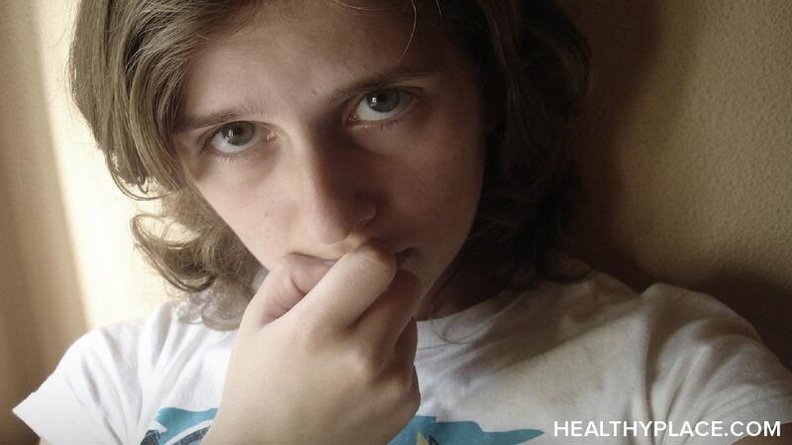Feeling Anxious but Knowing You Shouldn't

To feel anxious but know intellectually that you shouldn’t really be experiencing anxiety is an incredibly frustrating experience. This frustration can increase both stress and anxiety as well as decrease self-efficacy, the belief in ourselves that we have what it takes to overcome challenges like anxiety and meet goals. To stop feeling anxious even when you know you shouldn’t is easier said than done—hence the irritation that comes when someone tells you to “just stop being anxious”. There is a way to bridge the gap between feeling anxious and knowing you shouldn’t.
Feeling Anxious but Knowing You Shouldn’t
Sometimes in anxiety treatment, people learn to become aware of thoughts and emotions as well as to step back and critically analyze what’s happening around them. In doing this, people learn to be rational and objective in taking in the world around them. The idea is that people will feel less anxious as they become able to reason, to talk themselves out of their anxiety. The rational, critically thinking part of the brain takes control away from the instinctive, primitive, fight-or-flight, anxious brain (Anxiety: It's in Your Head [Your Brain!]). In this triumph of the knowing over the feeling, anxiety is significantly reduced. That’s the idea, anyway.
It’s not uncommon for people to become increasingly rational and know they shouldn’t experience anxiety yet still find themselves feeling anxious. But why? Isn’t the “knowing” brain supposed to be more powerful than the “feeling” brain? The rational and the emotional parts of the brain are engaged in a power struggle, and when we try to take sides, we lose. We feel anxious, but we know we shouldn’t, and we’re stuck. Thankfully, there’s more to us and our brains than that and we can bridge the gap between feeling anxious and knowing we shouldn’t.
Bridge the Gap Between Feeling Anxious and Knowing You Shouldn’t
 Thoughts and feelings don’t make up who we are, nor do they control us. This means that there is a gap to bridge, and you can do it. Here’s how in just two steps:
Thoughts and feelings don’t make up who we are, nor do they control us. This means that there is a gap to bridge, and you can do it. Here’s how in just two steps:
- Drop the shouldn’t. Telling ourselves we shouldn’t be anxious is giving ourselves an order that only increases anxiety (Social Anxiety, Shoulding, and a Beginner's Mind [Shoshiin]). Sure, listen to your rational brain. Accept what it is saying. If you feel anxious anyway, accept that, too. Your thoughts and feelings can get along better than Democrats and Republicans, so just let them be without battling.
- Take action. In feeling anxious but knowing you shouldn’t, acting is the bridge that you cross to get unstuck. More than our feelings, more than our thoughts, we are our actions. Despite anxiety, despite depression, despite all other mental health challenges, despite disappointments and obstacles, we have the power to act anyway.
The ability to act springs forth from another human ability: the power to choose. We can’t always choose our feelings. We often experience extreme anxiety, and, of course, we don’t choose this. We often have racing thoughts that we don’t choose, irrational ones or rational ones. But we can choose to move, to take action despite anxiety.
Sometimes we get stuck and almost shut down when we feel anxious despite having rational thoughts that say we don’t need to have anxiety. However, we can always choose to act, to take charge of our situation by taking action. Tune into the below video for more information.
What is one little thing you can do right now despite feeling anxious, despite your thoughts about the whole situation? Go ahead. Take action and bridge the gap between feeling and thinking.
Let's connect. I blog here. Find me on Facebook, Twitter, LinkedIn, Instagram, and Pinterest. My mental health novels, including one about severe anxiety, are here.
APA Reference
Peterson, T.
(2016, November 24). Feeling Anxious but Knowing You Shouldn't, HealthyPlace. Retrieved
on 2025, December 6 from https://www.healthyplace.com/blogs/anxiety-schmanxiety/2016/11/feeling-anxious-but-knowing-you-shouldnt-bridging-the-gap
Author: Tanya J. Peterson, MS, NCC, DAIS
Well I know I CAN do something, I'd just rather not experience half the symptoms of a heart attack while I'm doing it. If the thing you need to do is the cause of anxiety then doing it is going to make it MUCH WORSE in the short term, not BETTER. I had hopes for this article based on the title but no, it's just a wordier take on "man up. Grow some balls. It's not that hard."
I came across this article at a really opportune time. What I'm taking from this is to let myself feel anxiety, but not berate myself because, intellectually, I know why it's happening. That's hard, but I will try. I'm also taking another suggestion and giving myself a task, an easy low-pressure one, and thinking about that for awhile.
Thank you.
Hello MargieHG,
It's great that you ran across this article right when you needed it. I love it when that happens to me. I think you summed this up perfectly! Keep reminding yourself of this because it doesn't come naturally -- at first. Eventually, you'll find yourself taking actions and just feeling anxiety when it pops up without beating yourself up for it.
Anxiety for me is involuntary and usually 24 hours a day, with varying levels. It has been that way for 35 years. Not sure why. But I will try to use rational techniques and critique the why's. But for me it was much higher than $64,000 question in that in my divorce I lost more than $400,000. But here I am for a reason.